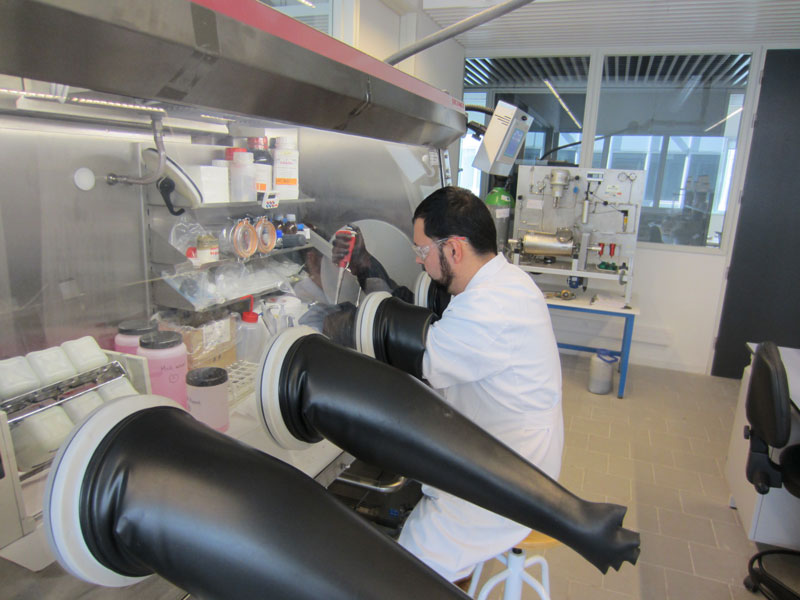Amphos 21 is very intensively working in the GL-CTEC program of ANDRA, whose objectives are to characterize and describe the chemical and thermal conditions able to control the physicochemical behavior of radionuclides under repository conditions.
The program contains three major thematic axes:
1) temperature effects. Amphos 21 perform a combination of experimental and modelling studies of how temperature increases effect radionuclide solubility and sorption of radionuclides and toxic metals onto clays.
2) study of saline wastes. We focus on the model of biogeochemical reactions in the presence of nitrates and develop the Specific Ion interaction Theory (SIT)
3) degradation of organic compounds. We work with organic compounds present in the repository whose degradation leads to the release of potentially complexing chemical species. Our aim is to study the biogeochemical stability of the organic waste, and experimentally address how these organic molecules effect the uptake of radionuclides onto cementitious materials
Each target was defined jointly and crosswise among several laboratories: Amphos 21, BRGM, CEA, GéoRessources, SUBATECH and Laboratoire Matériaux et Durabilité des Constructions de Toulouse.


